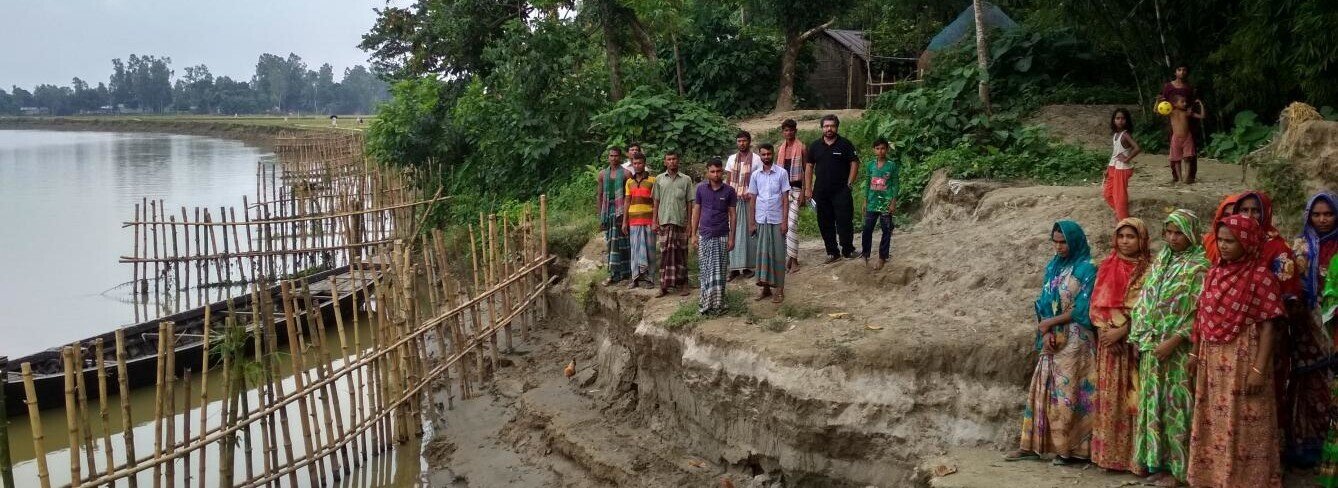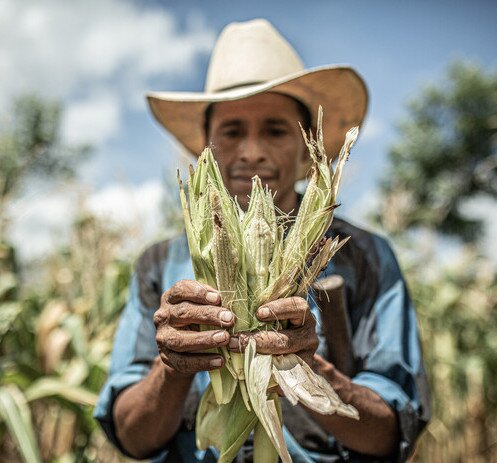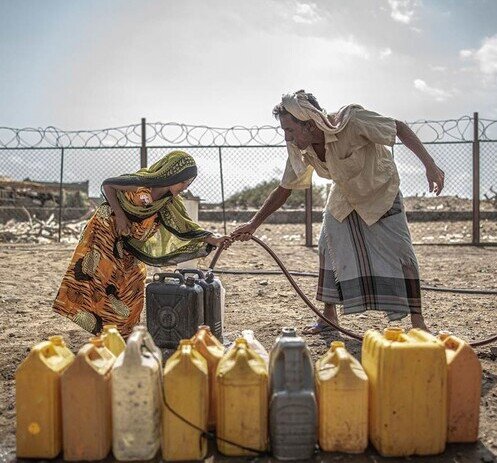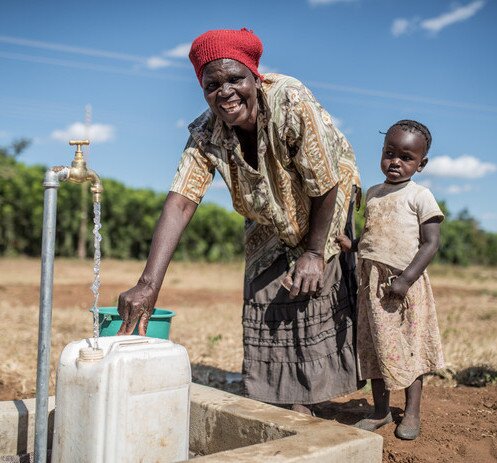In recent years, climate change has led to changes in the frequency, intensity and spatial extent of cyclones. Communities living along transboundary river basins of South Asia are among the most vulnerable to extreme weather events. In many disaster-prone villages, people reduce the damage of floods by erecting truss-out bamboo scaffolding along the riverbank. (Photo: Enamul Khan Siddique/ Oxfam)
The Situation
Cyclone Amphan barrelled into north-east India and the Bangladesh coast from 20 to 21 May 2020, claiming the lives of over 100 people, destroying the homes of at least 500,000 and devastating the lives of over 13 million. The low-lying coastal communities are the hardest hit. It has left a trail of devastation with destroyed crops and fallen trees. In many rural communities, a large number of electricity poles fell down and mobile services were disrupted.
The cyclone has also left a trail of destruction along the coastlines of the two countries, compounding the suffering of many poor and vulnerable communities already hit by coronavirus outbreak and the impact of the lockdown. ‘The impact of Amphan is worse than coronavirus,’ the Chief Minister of West Bengal State Mamata Banerjee said.
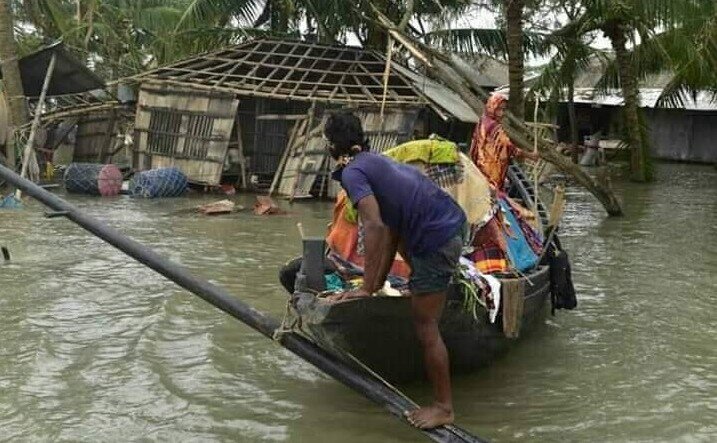
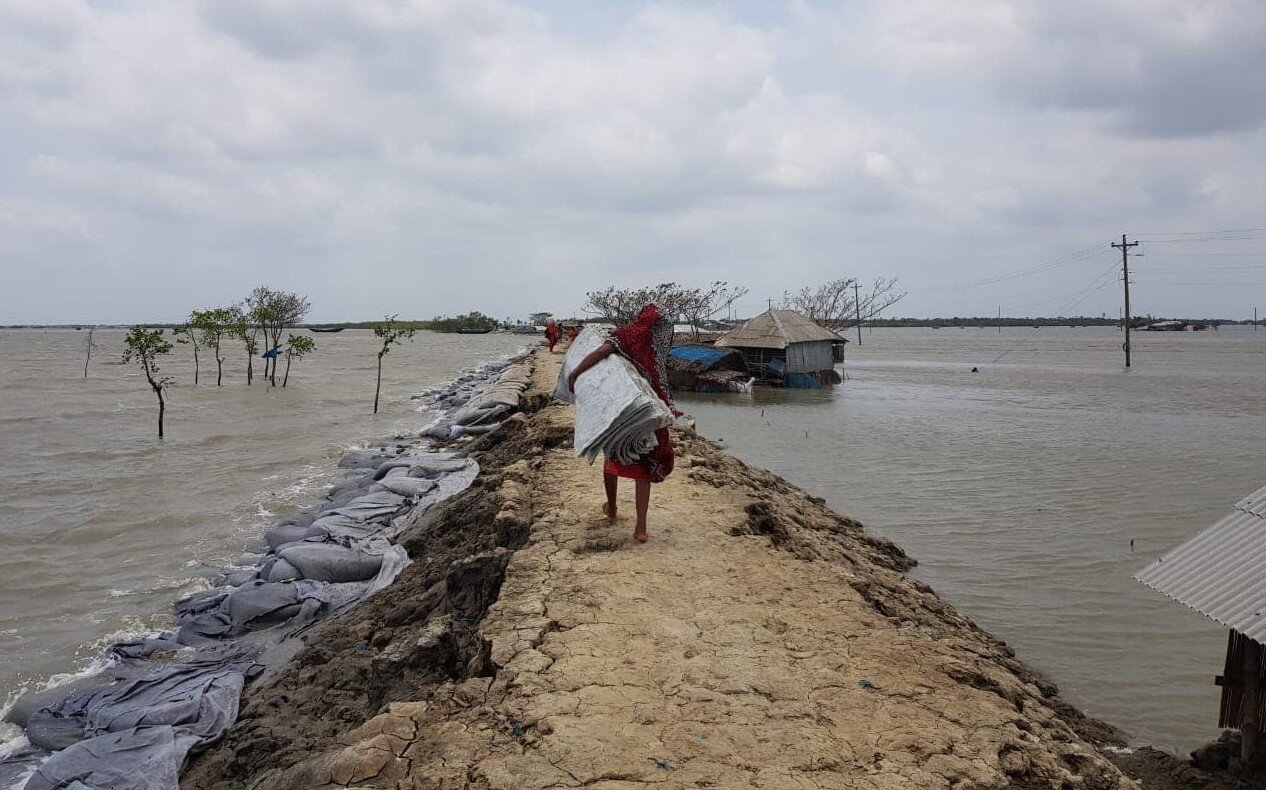
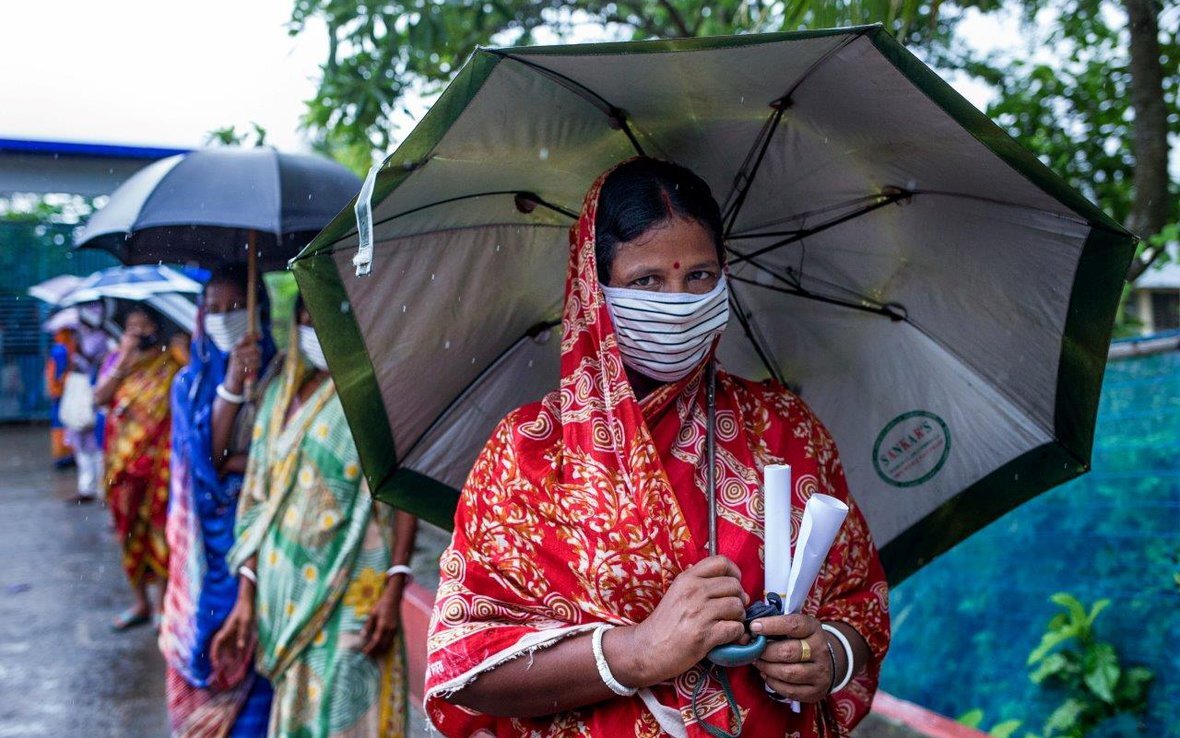
Oxfam's immediate response
As soon as the cyclone passed by and humanitarian staff were safe to move, Oxfam and its partners in India and Bangladesh set out to determine the needs and provide humanitarian assistance in the hard-hit districts. Together, we are working to:
- Distribute food and hygiene supplies such as soap to severely affected communities
- Clean and disinfect the local cyclone shelters, ramp up public health messaging about face masks and social distancing; and prepare hand sanitizer for families arriving at the shelters
- Prepare water sanitation facilities for communities in the low-lying coastal areas to prevent contaminated water from destroying crops and causing health problems
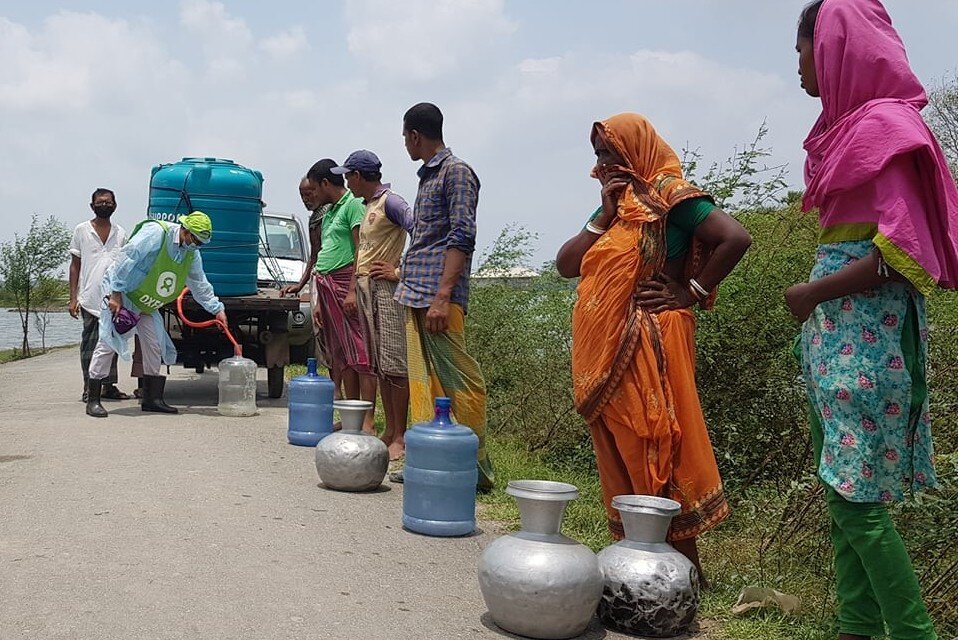
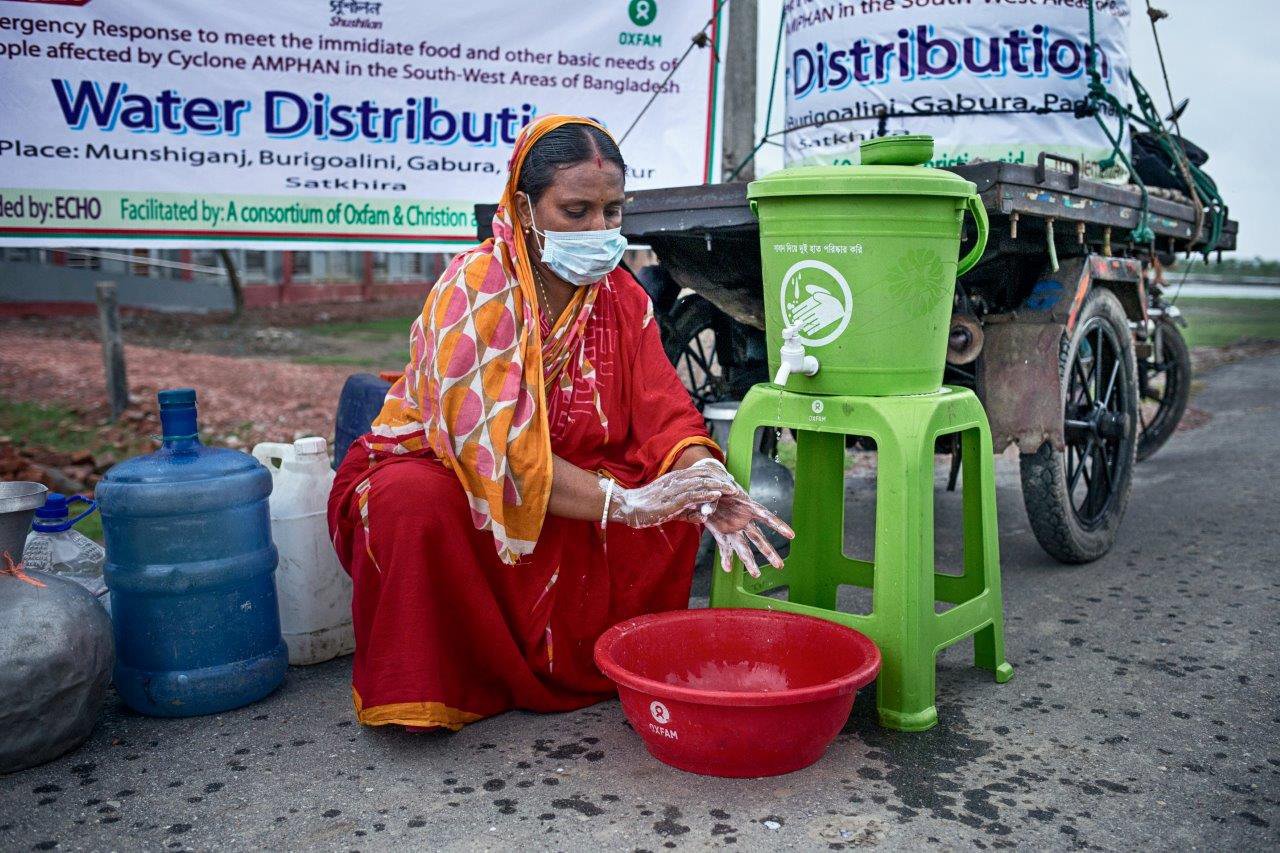
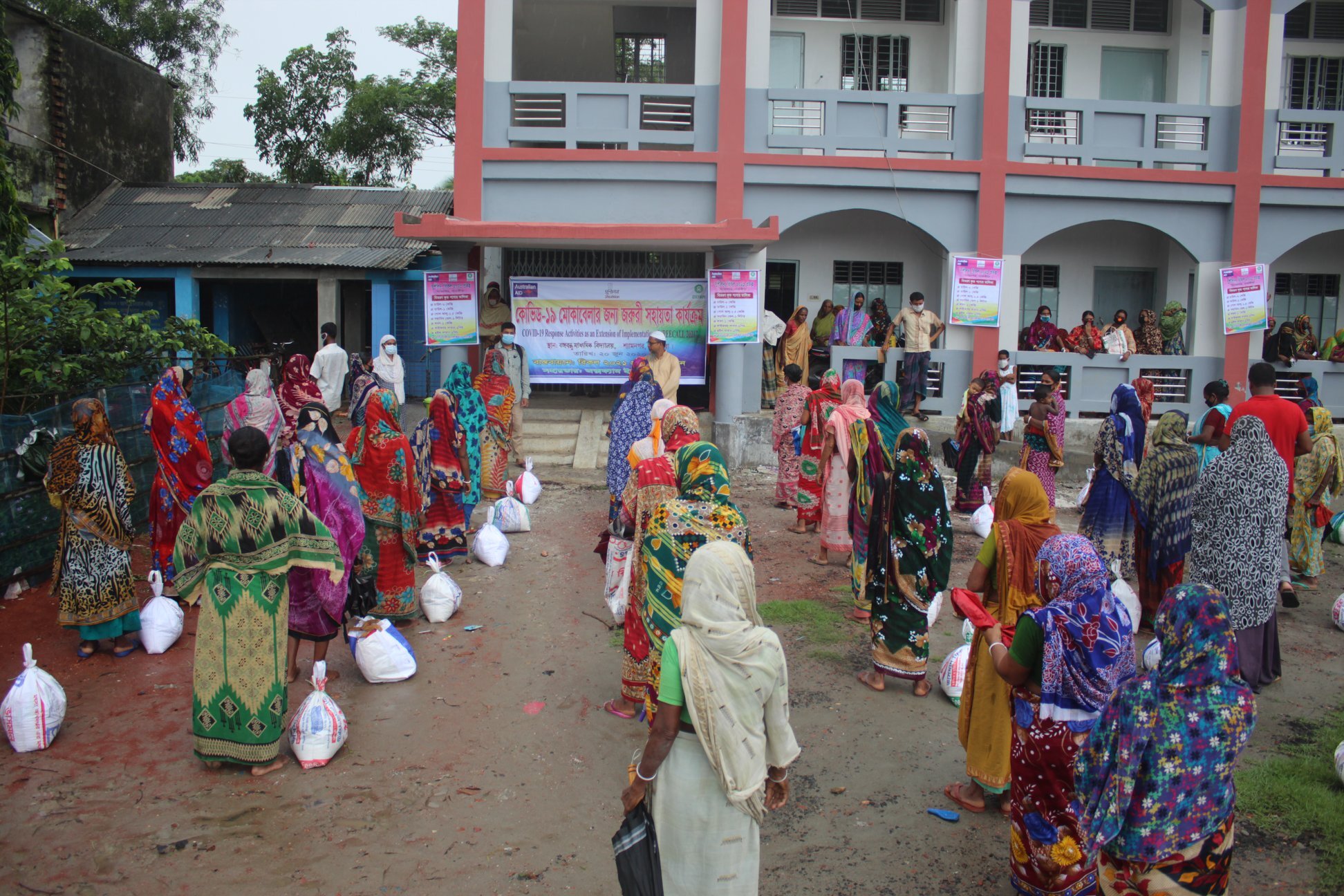
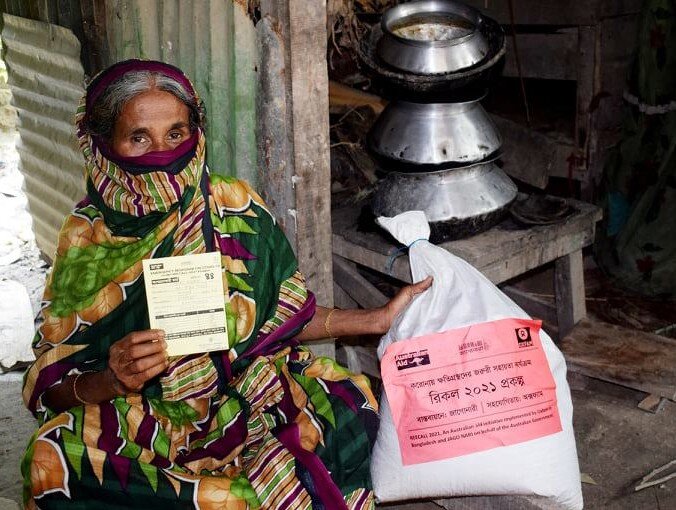
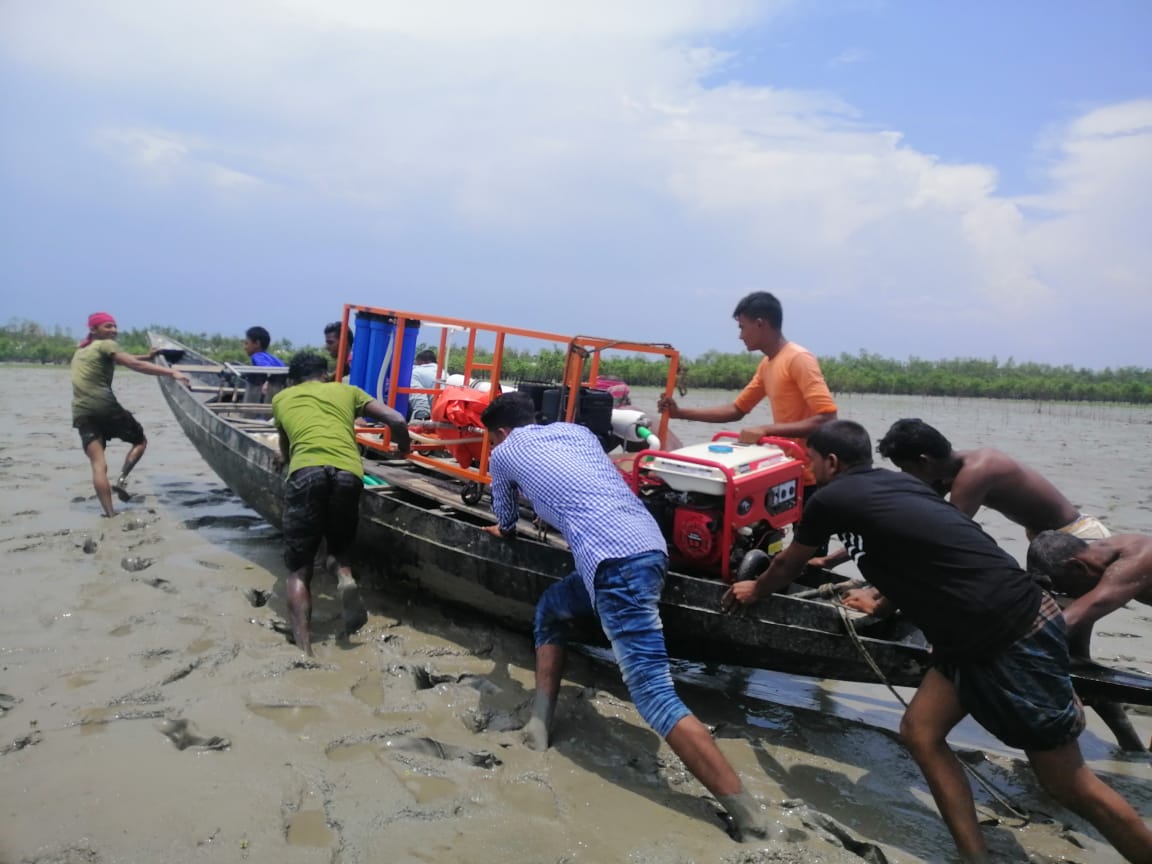
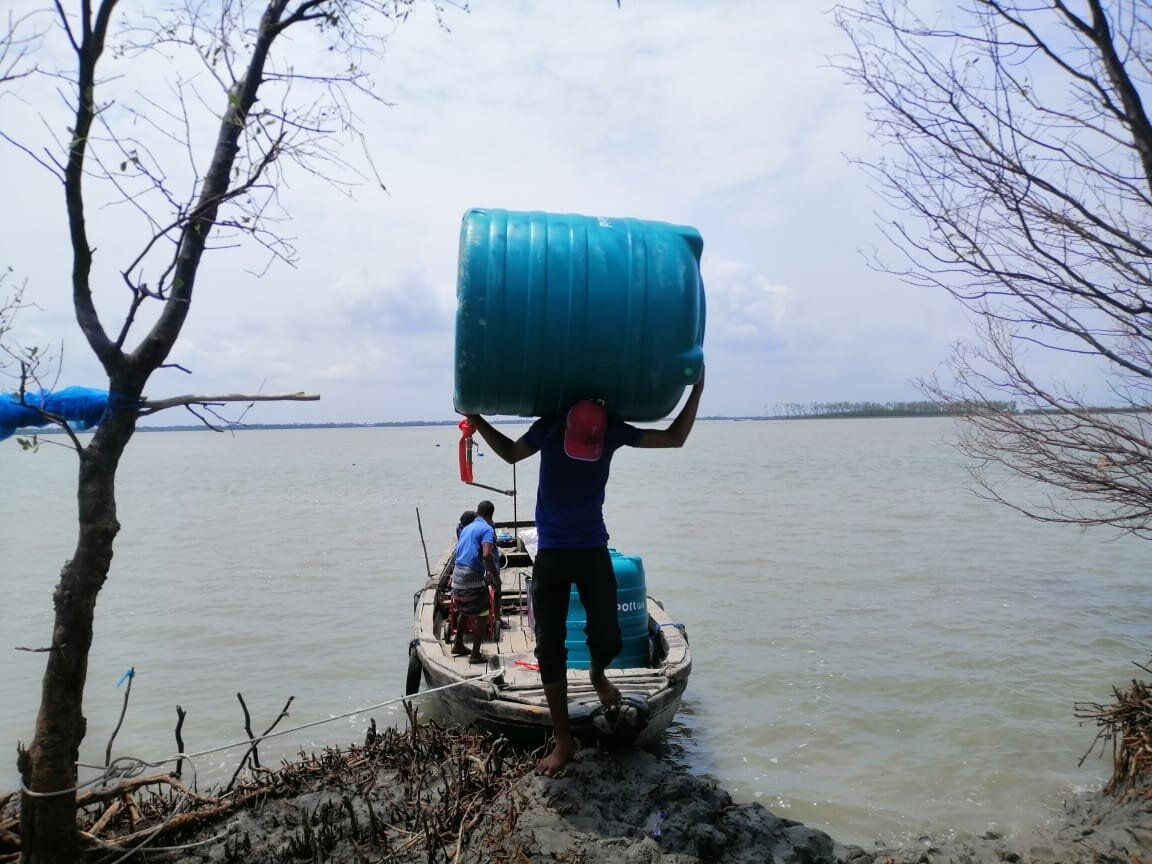
Grants from HKSAR Disaster Relief Fund for Cyclone-affected Families
Due to the severity of the disaster, Oxfam Hong Kong (OHK) submitted two relief proposals to the HKSAR Disaster Relief Fund Advisory Committee (DRF) so that we could offer more survivors in the affected area with support.
On 10 July 2020, OHK received a grant of HK$6.4 million from the DRF to support 9,400 cyclone-affected households (approximately 47,000 people, with five to a household) in West Bengal, India. Each family we reach will receive a household kit, which includes a tarpaulin, ground sheet, bedsheet, mosquito net, solar lantern, and household water filter. They will also receive a hygiene kit, which contains a bucket, mug, water chlorination tablets, soap, laundry detergent, sanitary pads, oral rehydration salts, antiseptic lotion , comb, nail clipper, toothpaste, toothbrushes, face masks, hand sanitizers and safety pins.
On 20 July 2020, OHK received HK$5.147 million in funding from the DRF to support 12,450 cyclone-affected households (approximately 62,250 people, with five people to a household) in Barishal Division in Bangladesh. Each family we reach will receive one food kit and one hygiene kit, and 3,000 families whose houses were completely damaged will receive shelter kits as well. Each food kit contains 20 kg of rice, 2.5 litres of cooking oil, 2.25 kg of lentils, 1 kg of chira (flattened rice), 0.5 kg of salt, 0.5 kg of sugar and 4.5 kg of dal (bean). Hygiene kits also contain face masks, soap, a bucket, laundry detergent, reusable sanitary pads and a mug. And those who receive shelter kits will find a tarpaulin, rope, bamboo, nails and claw hammer inside.
The DRF requires that this fund be used for this specific disaster in accordance with the funding application submitted by Oxfam Hong Kong and approved by the DRF. The project will last for 12 weeks. After the completion of our relief work, we will carry out an evaluation, and submit an evaluation and financial report (including an external audit report) to the DRF.

